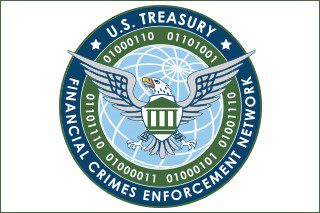Kingdom Trust, a small South Dakota company, quietly navigated the unexciting realm of individual retirement account custodianship. During the mid-2010s, it began courting a markedly different clientele: obscure firms from notorious offshore havens struggling to secure U.S. accounts. In April 2023, FinCEN announced a $1.5 million civil money penalty on Kingdom Trust for willful violations of the Bank Secrecy Act (BSA). It was FinCEN’s first enforcement action against a trust company.
According to Himamauli Das of the Treasury Department’s Financial Crimes Enforcement Network (FinCEN), the company had almost no system in place to detect and report suspicious activities. This marked the first instance in FinCEN’s 30-year history of penalizing a trust company for flouting money laundering prevention statutes.
The investigation into Kingdom Trust revealed a broader issue: a well-entrenched system aiding kleptocrats and affluent Westerners in funneling money anonymously through the U.S. economy. This system includes a network of trust companies, law firms, and real estate agencies enabling the transfer of dubious funds, positioning the U.S. as a global hotspot for kleptocratic cash. America’s appeal as a haven for offshore wealth is bolstered by favorable laws in places like South Dakota, providing unparalleled secrecy for financial dealings.
The establishment of American shell companies can be traced back to the late 19th century, with Delaware leading the charge by offering incentives to corporations that contributed to its reputation as a corporate-friendly state. This trend was followed by other states like Nevada and Wyoming, each crafting regulations to attract those seeking to obscure their wealth. The article also highlights the pivotal role of the real estate sector and the legal profession in the laundering process, with both industries exempt from stringent AML checks, further facilitating the movement of illicit funds into the U.S.
The narrative takes a deeper dive into South Dakota’s evolution into a trust haven, beginning with Governor William Janklow‘s initiatives in the early 1980s to deregulate financial services, including trusts. These efforts led to the creation of “perpetual trusts” and an environment of strict confidentiality, attracting billions in assets. Kingdom Trust‘s case is emblematic of the broader systemic issues, underscoring the ease with which high-risk clients could maneuver billions through the U.S. financial system under the guise of trust and estate planning.
Despite recent legislative efforts to tighten regulations around shell companies and enhance transparency, the trust industry, particularly in states like South Dakota, remains largely insulated from significant reform. The Kingdom Trust penalty by FinCEN, though a historic move, is seen as merely symbolic, barely denting the entrenched practices that make the U.S. an attractive destination for the world’s concealed wealth.
Report Financial Wrongdoing
If you have information about financial wrongdoing, please share it via our whistleblowing system, Whistle42.





